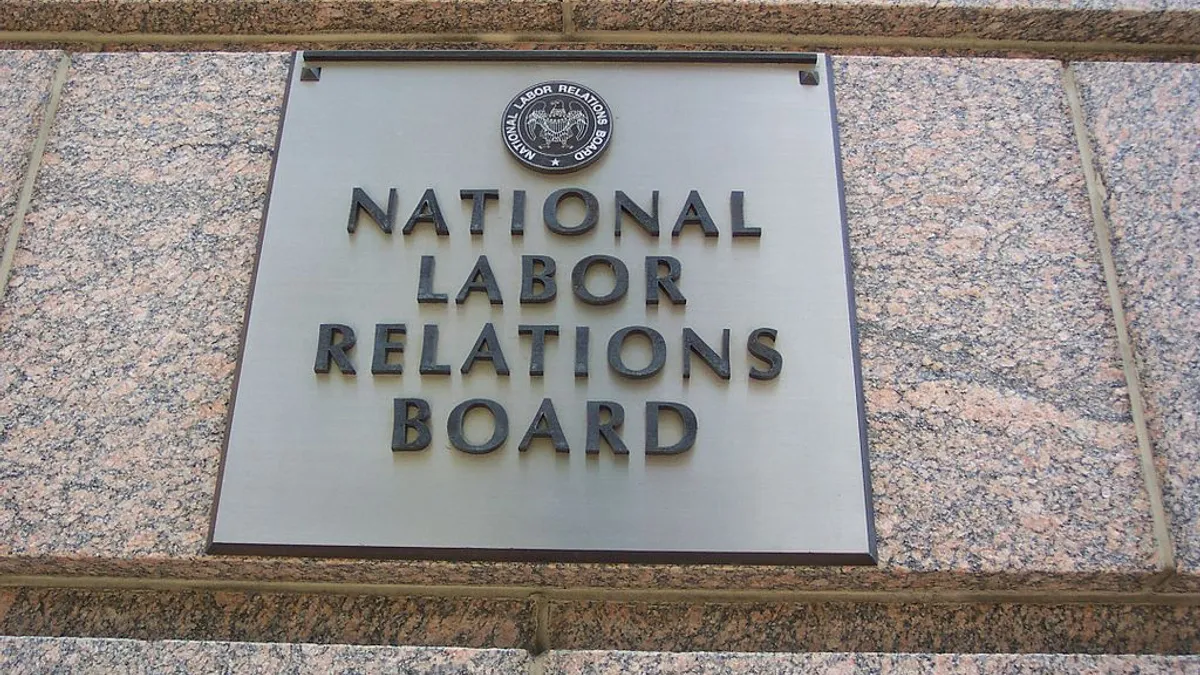Dive Brief:
- Waste management firm Browning-Ferris Industries is not a joint employer of workers employed by Leadpoint Business Services, the National Labor Relations Board (NLRB) said July 29, overturning one aspect of a 2015 decision that heralded a shift in U.S. labor law.
- In 2015, NLRB concluded that Browning-Ferris was a joint employer, applying retroactively a then-new joint-employer standard. "Upon careful consideration, we find that retroactive application of any clarified variant of the new joint-employer standard in this case would be manifestly unjust," the Board said in its July 29 decision, adding that it removed Browning-Ferris Industries, doing business as BFI Newby Island Recyclery, as a joint employer in the representation case.
- With the decision, the board affirmed an acting regional director's 2013 finding that Browning-Ferris is not a joint employer. This finding, NLRB said, means that the company did not violate the National Labor Relations Act by refusing to bargain with the Leadpoint employees' union, an affiliate of the International Brotherhood of Teamsters.
Dive Insight:
The NLRB's ongoing saga over the initial Browning-Ferris decision, spanning two presidential administrations and a corresponding shift of the board's majority, continues to impact present-day labor law.
After the initial 2015 decision, the case was tried before the U.S. Circuit Court of Appeals for the D.C. Circuit. Meanwhile, the electoral victory of President Donald Trump shifted the NLRB back to a Republican majority in 2017. The new Board subsequently overturned the joint-employer standard set in Browning-Ferris in a 3-2 decision in Hy-Brand Industrial Contractors, Ltd. and Brandt Construction Co. Shortly after the decision in Hy-Brand, the D.C. Circuit remanded Browning-Ferris to NLRB.
In 2018, NLRB vacated its Hy-Brand decision, however, after a report from its inspector general questioned the validity of that decision due to the participation of NLRB member Bill Emanuel, who had been an attorney with the law firm representing the employer in Browning-Ferris. The Browning-Ferris case was sent back to the D.C. Circuit, and in 2019, the court approved the Obama-era NLRB's decision in Browning-Ferris in part, noting that the Board at the time didn't apply its new joint employer standard properly. The court once again remanded the case to NLRB.
In February 2020, the current NLRB published a final rule updating its joint-employer standard. The new standard articulates that an employer may only be considered a joint employer of a separate employer's employees if it possesses and exercises substantial direct and immediate control over the employees' essential terms of employment. The board said the rule would take effect in April. In a previous interview with HR Dive, one management-side attorney called the new rule the end of a "five to six year nightmare" for employers.
Efforts have continued in spite of the latest final rule to codify the Obama-era joint-employer standard set in Browning-Ferris. In May 2019, Congressional Democrats introduced companion bills that would do so, supported by some labor unions.
Neither Leadpoint Services nor Republic Services, the company that owns Browning-Ferris Industries, immediately responded to HR Dive requests for comment.













